Women in Tech
Since early 2000s Armenian Government has deemed development of IT sector a priority. It has introduced taxation privileges for IT companies, been taking measures to attract foreign investment and considering an idea of building engineering campuses. As a result, amount of people working in IT is rapidly growing, but still ever increasing number isn't as high as an amount of open vacancies. Population of Armenia is fewer than 3 million, around 1 mlln lives in Yerevan and out of that number more than 22,000 are working in the IT industry. While around 3,000 positions are open.
In Armenia there are companies specialising in all sorts of spheres from game development and web design, to cryptocurrency and blockchain, but majority of the companies are software development ones. Small number of software development companies bring up to 48% of industry revenue. And out of 22,000 employed in IT, 74% are developers. In comparison, in Ukraine developers constitute 58% out of all employed in IT, in Belarus it is 40%.
However, fast growth or creative offices are not the main peculiarity of Armenian IT sector. Armenia stands out due to the high percentage of women working in IT. On average in the world share of women employed in IT doesn't exceed 20% even though tech world aspires to achieve gender balance and diversity. In Armenia number is around 30%.
In Armenia there are companies specialising in all sorts of spheres from game development and web design, to cryptocurrency and blockchain, but majority of the companies are software development ones. Small number of software development companies bring up to 48% of industry revenue. And out of 22,000 employed in IT, 74% are developers. In comparison, in Ukraine developers constitute 58% out of all employed in IT, in Belarus it is 40%.
However, fast growth or creative offices are not the main peculiarity of Armenian IT sector. Armenia stands out due to the high percentage of women working in IT. On average in the world share of women employed in IT doesn't exceed 20% even though tech world aspires to achieve gender balance and diversity. In Armenia number is around 30%.

For example, in the Armenian office of Synopsys, the world's 15th largest software company specialising in in creating chips and semiconductors, 33% of engineers are women while in their office in Silicon Valley number is less than 15%.
Women in IT are full-fledged participants. They are involved not only in business and marketing departments, they are game developers, programmers and QA engineers. At universities they are equal to men in both numbers and knowledge.
Get to know Armenian IT in person
Women in IT are full-fledged participants. They are involved not only in business and marketing departments, they are game developers, programmers and QA engineers. At universities they are equal to men in both numbers and knowledge.
Get to know Armenian IT in person

It's impossible to name one factor driving growth of the Armenian IT sector. Many developers mention that basis for successful tech carer is established at an early age. Armenia is the only country in the world where children have obligatory chess classes since second grade. The game develops algorithmic thinking and teaches to solve multi-layered problems.
Nune: "I'm from IT family. At first, my sister and I played chess and when we were 12 years old we started coding in C++. Our dad was our coach. Then came university and studies at the faculties related to computer science and the first job. At the moment I'm a team lead at VOLO. Chess has always been a respected sport in Armenia. Chess and programming are distinguishing features of Armenian IT sector."
Every year in the country more than 7,000 people or 9% of all undergrads study on the IT related faculties. In addition, a lot of people attend professional courses or get their education at the technology centers. But IT is a sphere one should really love to be successful in.
"The industry's active growth directly or indirectly affects everyone involved in it. Now the industry grows and develops very fast, a lot of conferences and forums take place in the country. We meet new people, extend our network which in turn simplifies the process of finding a new team members or a new job. I like attending conferences and public speaking events, they give you a chance to understand the direction sector is heading to and help to assess your own knowledge and position in the industry.
If you want to achieve more in the industry it's crucial to develop both hard and soft skills, then finding a good job and a company won't be a problem. If you are a good specialist, of course. There is a big difference between people who work in IT because they love it and those who switch to the field because of the high salary. It's usually difficult for the latter to find a good company, as often they are mediocre professionals and motivated only by money."
Nune: "I'm from IT family. At first, my sister and I played chess and when we were 12 years old we started coding in C++. Our dad was our coach. Then came university and studies at the faculties related to computer science and the first job. At the moment I'm a team lead at VOLO. Chess has always been a respected sport in Armenia. Chess and programming are distinguishing features of Armenian IT sector."
Every year in the country more than 7,000 people or 9% of all undergrads study on the IT related faculties. In addition, a lot of people attend professional courses or get their education at the technology centers. But IT is a sphere one should really love to be successful in.
"The industry's active growth directly or indirectly affects everyone involved in it. Now the industry grows and develops very fast, a lot of conferences and forums take place in the country. We meet new people, extend our network which in turn simplifies the process of finding a new team members or a new job. I like attending conferences and public speaking events, they give you a chance to understand the direction sector is heading to and help to assess your own knowledge and position in the industry.
If you want to achieve more in the industry it's crucial to develop both hard and soft skills, then finding a good job and a company won't be a problem. If you are a good specialist, of course. There is a big difference between people who work in IT because they love it and those who switch to the field because of the high salary. It's usually difficult for the latter to find a good company, as often they are mediocre professionals and motivated only by money."

IT education often introduces you to the sphere without giving a certain specialty. Graduates of the same faculty successfully work in 3D modelling, cybersecurity and with cryptocurrency. Numerous incubators, accelerators and mentor programs help to fill a gap between the stages "I'm a beginner" and "I'm a specialist."
Mariam: "I've been working in IT sphere for a rather long period of time, officially since 2012. Several years ago I became a volunteer at the Innovative Solutions and Technologies Center (ISTC)."
ISTC is the center aimed at business development, the center provides software, equipment, and space, conducts training sessions and research. It's a joint project of the Government of the Republic of Armenia, Yerevan State University, IBM, Enterprise Incubator Foundation and USAID.
"I joined ISTC as a volunteer in 2015. It was a small organization opened in cooperation with IBM. It was something like an IBM institute outside of the USA, first in its kind in the region. And we are still based at the Institute. In many ways that experience made me a specialist I am today.
When I was a junior I met managers who didn't know what a junior is supposed to do. Every beginner should have a mid-level specialist who will guide him or her, if a company is interested in their growth.
In ISCT I worked on many projects, participated in different hackathons and competitions, we worked with various impressive software. I was involved in several teams. It taught me how to work in a team which wasn't easy. Sometimes it's easier to just do everything by yourself but in that case you'll finish work in 2 months, while a team manages to do it in 3 weeks. 3 weeks and a lot of nerves.
I don't think that there is fundamental problems with lack of knowledge in Armenian IT sphere, though of course another specialist may see the situation differently. Nowadays thanks to IT lots of business and technical professions that several years ago weren't relevant are flourishing.
But we still feel the lack of business staff. We know how to develop a cool technology but how to launch and to promote it is another story."
Mariam: "I've been working in IT sphere for a rather long period of time, officially since 2012. Several years ago I became a volunteer at the Innovative Solutions and Technologies Center (ISTC)."
ISTC is the center aimed at business development, the center provides software, equipment, and space, conducts training sessions and research. It's a joint project of the Government of the Republic of Armenia, Yerevan State University, IBM, Enterprise Incubator Foundation and USAID.
"I joined ISTC as a volunteer in 2015. It was a small organization opened in cooperation with IBM. It was something like an IBM institute outside of the USA, first in its kind in the region. And we are still based at the Institute. In many ways that experience made me a specialist I am today.
When I was a junior I met managers who didn't know what a junior is supposed to do. Every beginner should have a mid-level specialist who will guide him or her, if a company is interested in their growth.
In ISCT I worked on many projects, participated in different hackathons and competitions, we worked with various impressive software. I was involved in several teams. It taught me how to work in a team which wasn't easy. Sometimes it's easier to just do everything by yourself but in that case you'll finish work in 2 months, while a team manages to do it in 3 weeks. 3 weeks and a lot of nerves.
I don't think that there is fundamental problems with lack of knowledge in Armenian IT sphere, though of course another specialist may see the situation differently. Nowadays thanks to IT lots of business and technical professions that several years ago weren't relevant are flourishing.
But we still feel the lack of business staff. We know how to develop a cool technology but how to launch and to promote it is another story."

Project's success often depends on human element, sometimes even not so much on hard skills as soft ones. Stereotypical image of a developer as a person glued to the computer and chair doesn't correspond with a real picture with its energetic environment and active processes.
Anna: "IT is not just programming, it's a mindset, flexibility and openness to anything new, and huge responsibility. When you join IT sector, you don't just enter one sphere but many different domains. My first interesting project was about image recognition with neural networks, then speech recognition, later social networks. For a long time I specialized in healthcare and then finance. IT is a dynamic and diverse sphere that is not just related to some spheres of life but also has a strong impact on them. To keep up with its development it's crucial to be agile, constantly learn something new, follow trends, and be interested in innovation.
The image of developers as antisocial geeks in front of computers is an outdated stereotype. IT is about teamwork, you need to be able to communicate with people and at the same time to be able to create something on your own. Seemingly two polar sides but you constantly switch between them.
It doesn't really matter whether you work in the Yerevan office of an international company, for a local company or a startup. Lines are blurred. What really matters is people, established processes, team and culture.
I always think about the core of a team, if you have a solid base and healthy atmosphere then a team works much better. When you have an established core of the team it's much easier to add new people to the mix. Even if they don't fit to a certain extent they can adapt.
In the last few years the number of people in IT has grown significantly and these people are very different. As a result flexibility is essential. You need to be able to listen to people and to understand them. When I conducted interviews to put my team together I paid attention not only to professional experience but also to open-mindedness. It's very important for a person to be a team player. Only then can an efficient team be built. That's the the key to success."
Anna: "IT is not just programming, it's a mindset, flexibility and openness to anything new, and huge responsibility. When you join IT sector, you don't just enter one sphere but many different domains. My first interesting project was about image recognition with neural networks, then speech recognition, later social networks. For a long time I specialized in healthcare and then finance. IT is a dynamic and diverse sphere that is not just related to some spheres of life but also has a strong impact on them. To keep up with its development it's crucial to be agile, constantly learn something new, follow trends, and be interested in innovation.
The image of developers as antisocial geeks in front of computers is an outdated stereotype. IT is about teamwork, you need to be able to communicate with people and at the same time to be able to create something on your own. Seemingly two polar sides but you constantly switch between them.
It doesn't really matter whether you work in the Yerevan office of an international company, for a local company or a startup. Lines are blurred. What really matters is people, established processes, team and culture.
I always think about the core of a team, if you have a solid base and healthy atmosphere then a team works much better. When you have an established core of the team it's much easier to add new people to the mix. Even if they don't fit to a certain extent they can adapt.
In the last few years the number of people in IT has grown significantly and these people are very different. As a result flexibility is essential. You need to be able to listen to people and to understand them. When I conducted interviews to put my team together I paid attention not only to professional experience but also to open-mindedness. It's very important for a person to be a team player. Only then can an efficient team be built. That's the the key to success."
If you have any questions, write us on hi@itis.am.
Armenian Tech Digest: latest news, new vacancies, stories of newcomers, everything with a grain of humour
